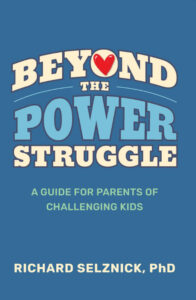
While meeting with parents to discuss the concerns they have regarding their children’s struggling, numerous hypotheses and theories are often offered as to why children do what they do.
Typically, the theories are linked to medical explanations, in other words there is a medical disorder that needs correcting.
Let’s listen to some recent statements:
“After starting on Concerta, George seemed to be playing better with other kids, but now no one seems to want to play with him. Maybe we should try Adderall.”
“My daughter is refusing to do her work – we thought the Lexipro was working.”
“We don’t understand. We adjusted the Vyvanse, but he is still aggressive with his younger sister.”
“The school said Michael was very disrespectful and rude this week – maybe his Intuniv needs to be changed. Or maybe it’s his ‘sensory’ problems again.”
“Marla’s so unmotivated. She just wants to do nothing but go on TikTok. It must be the medication wearing off.”
And the beat goes on. And the beat goes on.
Things often not stated:
“I know my kid is manipulating us when he avoids his homework to go play video games.”
“Maybe the school is not the problem as to why she’s acting the way she is.”
“It’s not ok to say whatever you want in the class, even if you don’t like the work.”
“No one wants to invite Zach to their house or a birthday party; he never shares with the other kids and he has alienated them.”
What to do?
One step is to help kids recognize that choices made have built-in (natural) consequences. (“If you don’t share, others will not want to play with you. It’s that simple.”)
If we buffer kids from natural consequences, there will be no reason for them to learn from their mistakes and try a different approach.
Takeaway Point
Double check your hypotheses and theories.
Feel free to make comment below.
To receive future blog posts, register your email: https://shutdownlearner.com.
To Contact Dr. Richard Selznick for advice, consultation or other information, email: shutdownlearner1@gmail.com.

 Copyright, Richard Selznick, Ph.D. 2023, www.shutdownlearner.com.
Copyright, Richard Selznick, Ph.D. 2023, www.shutdownlearner.com.
